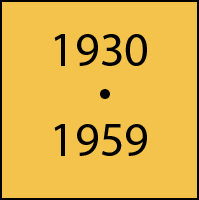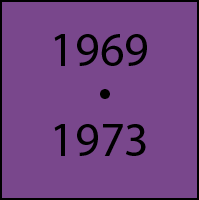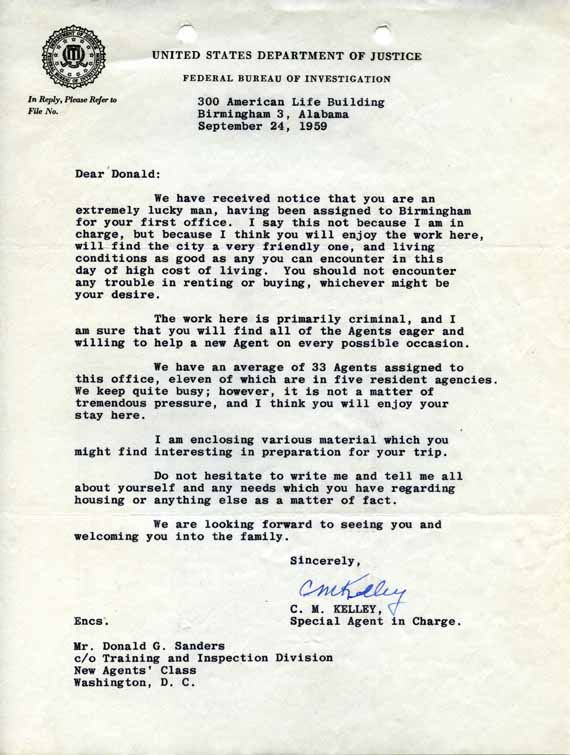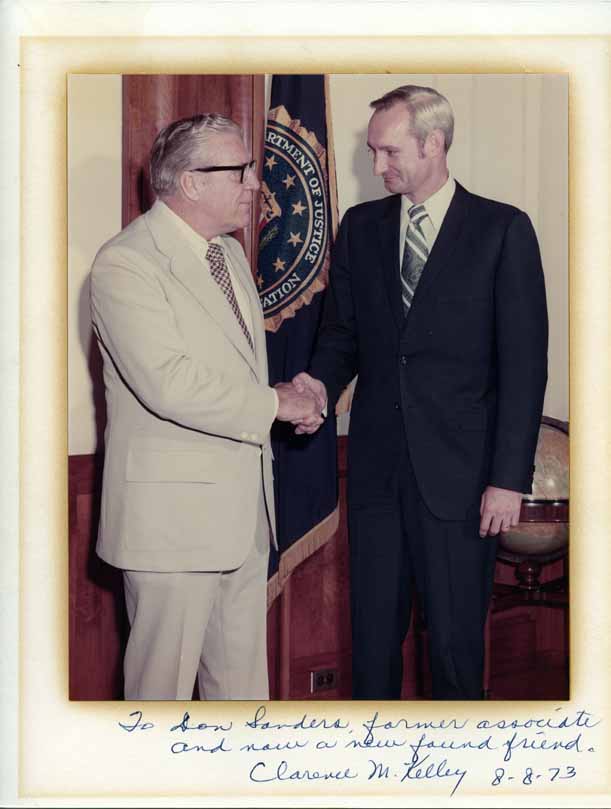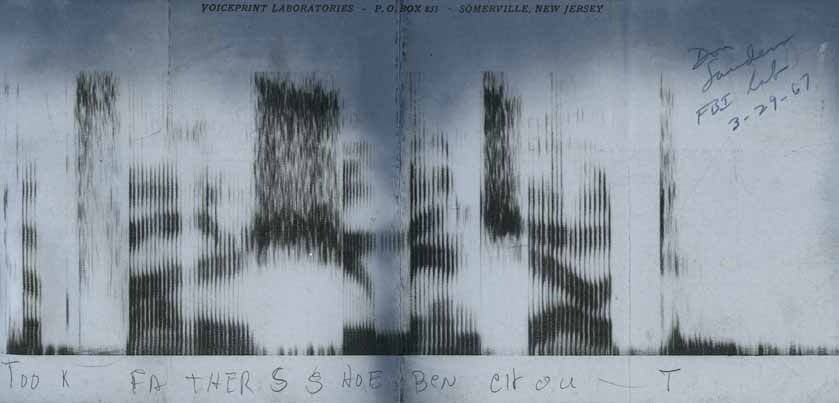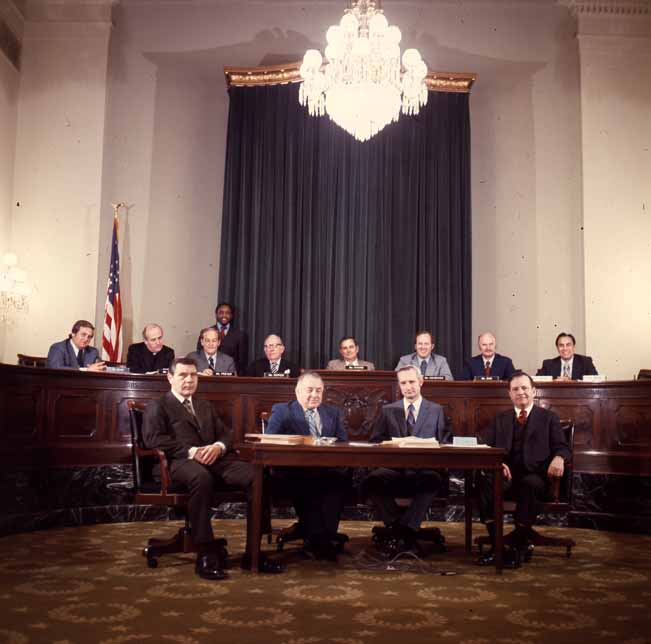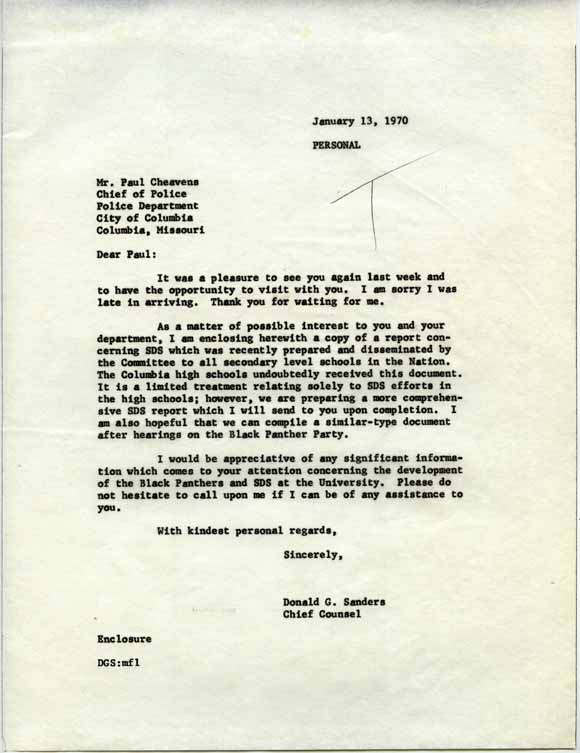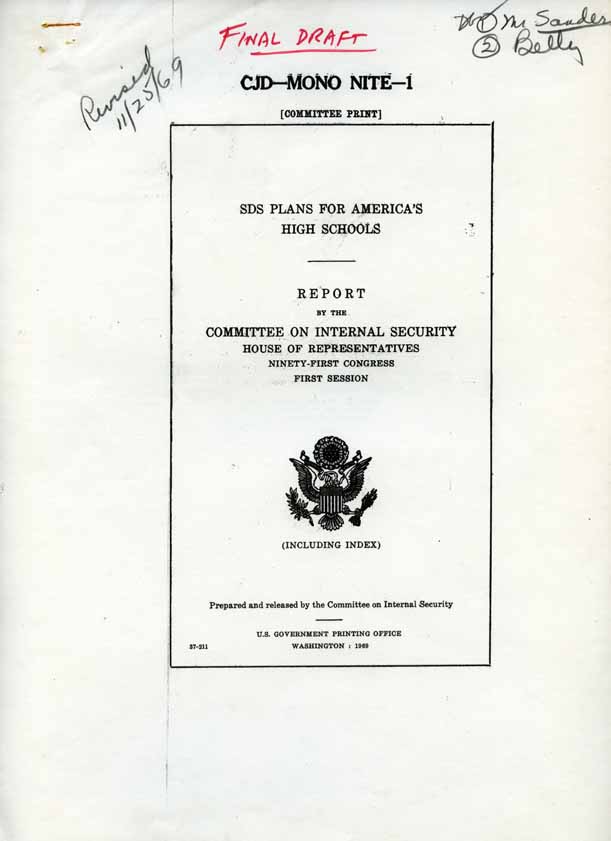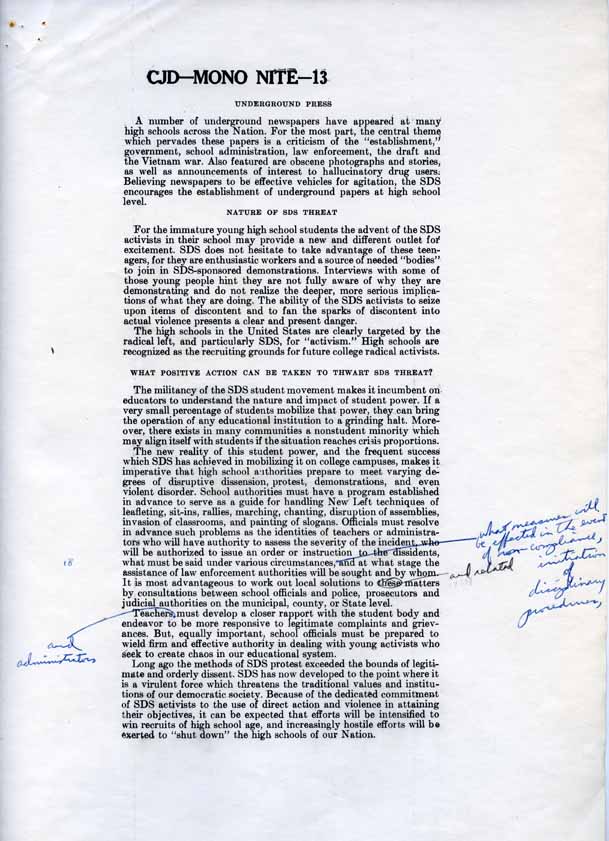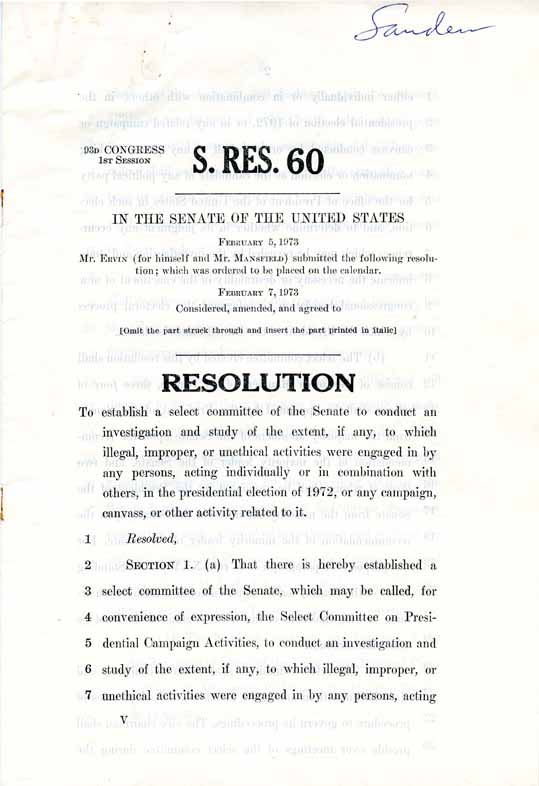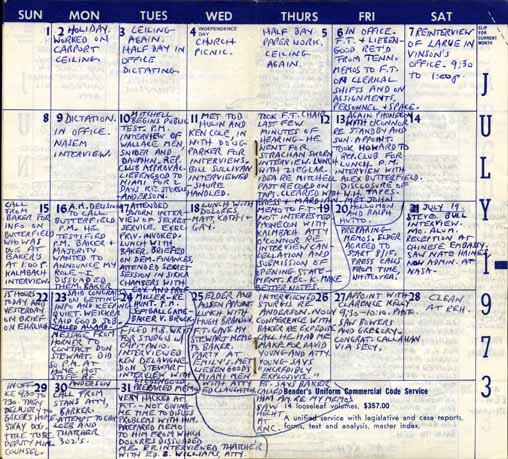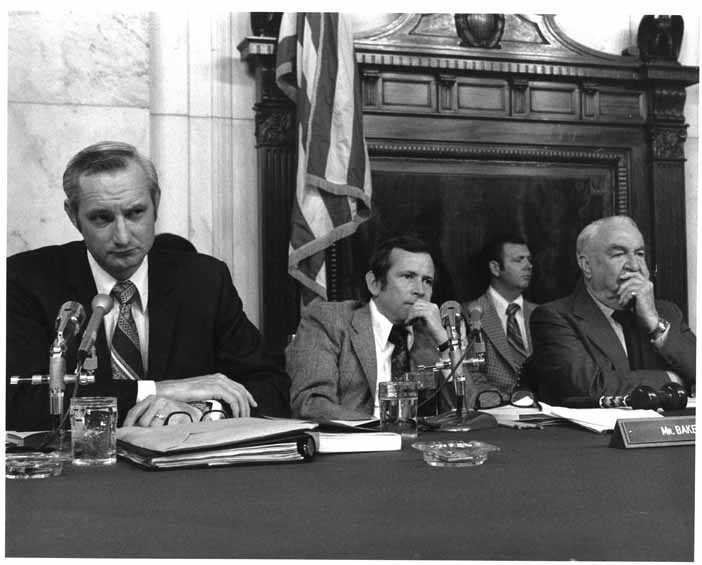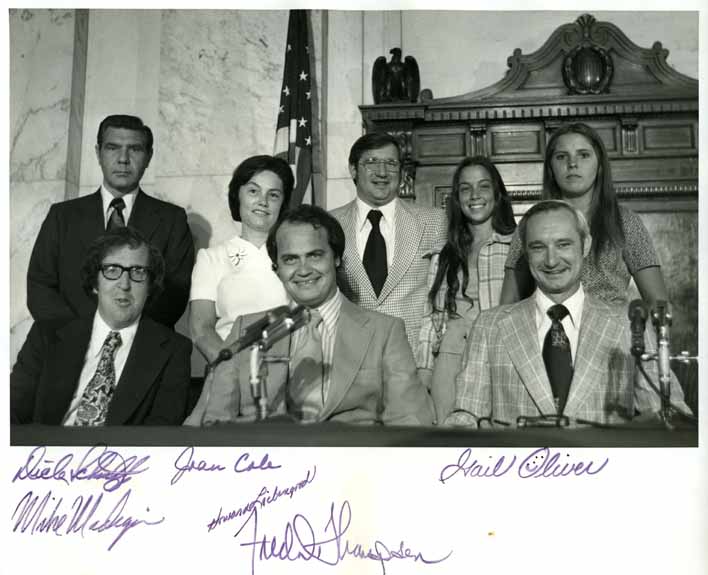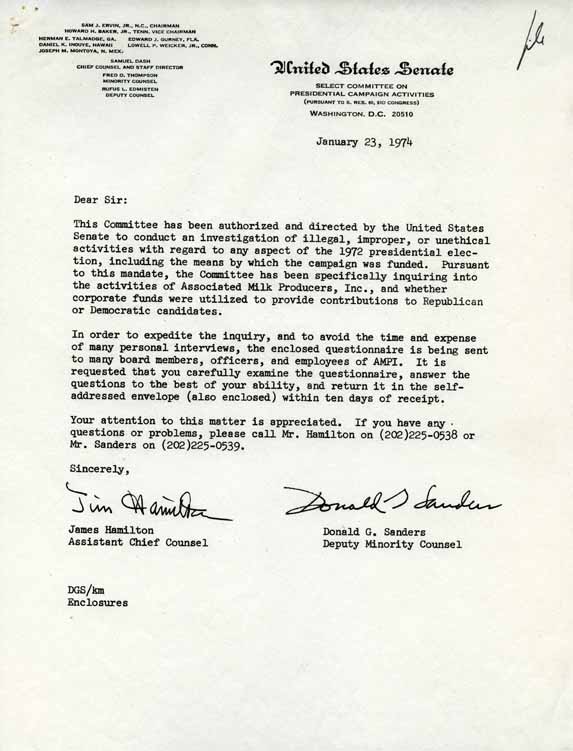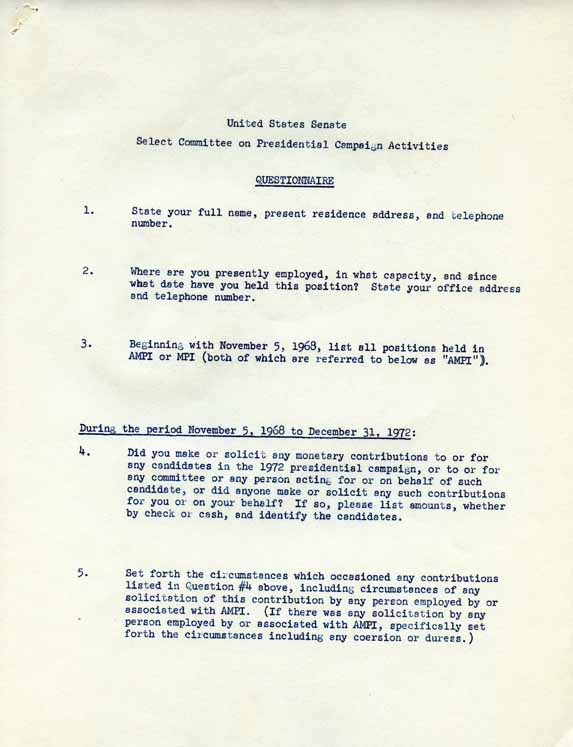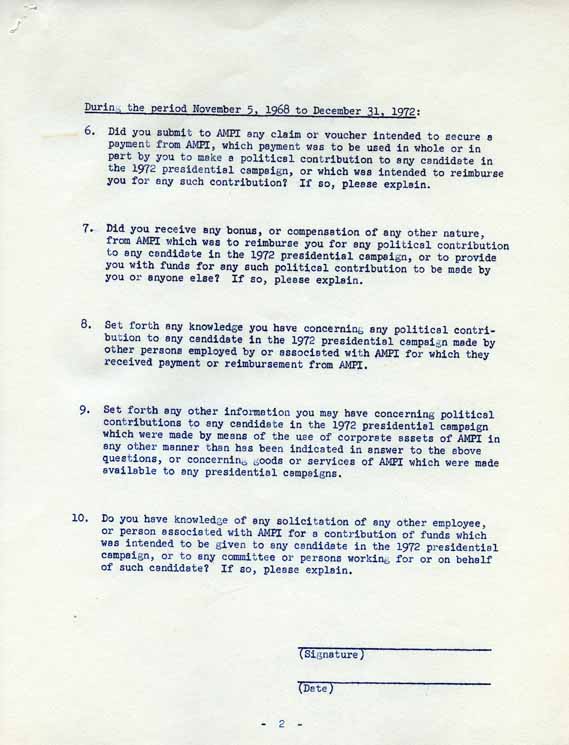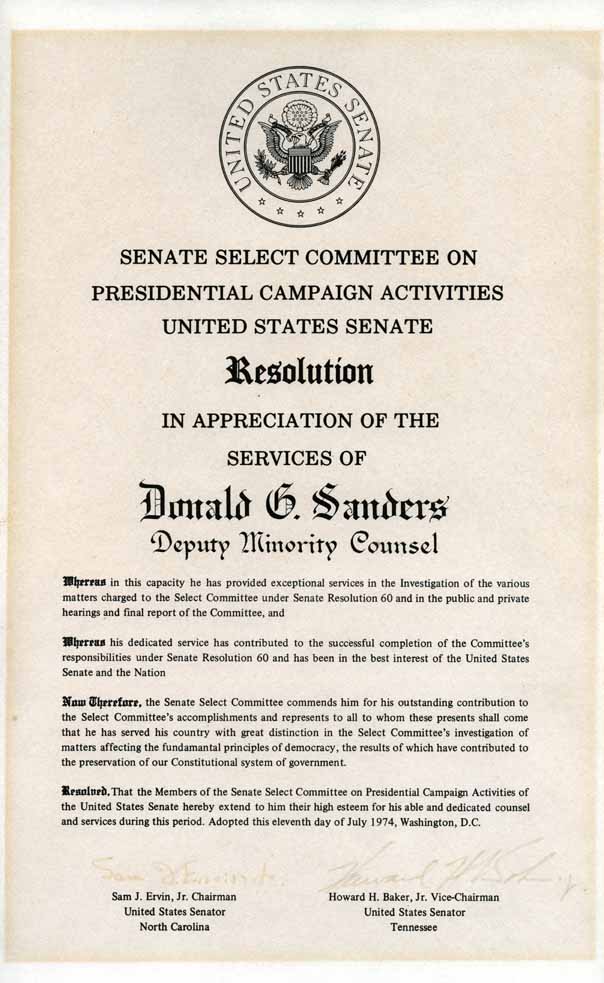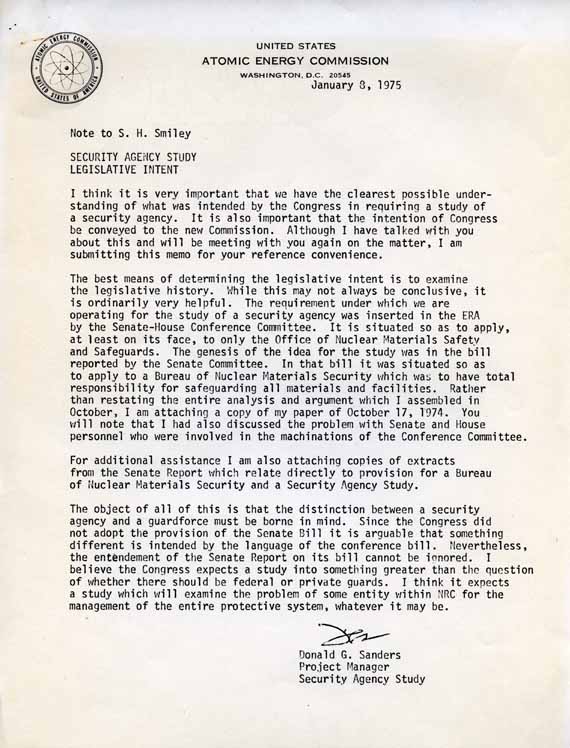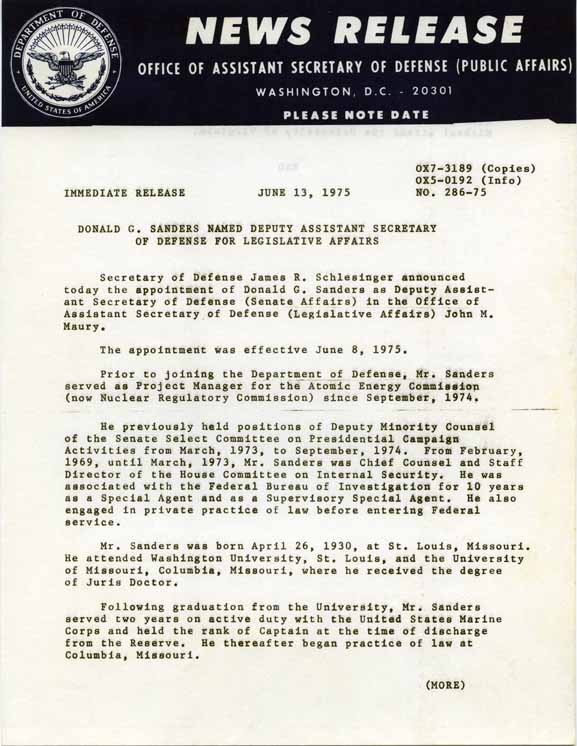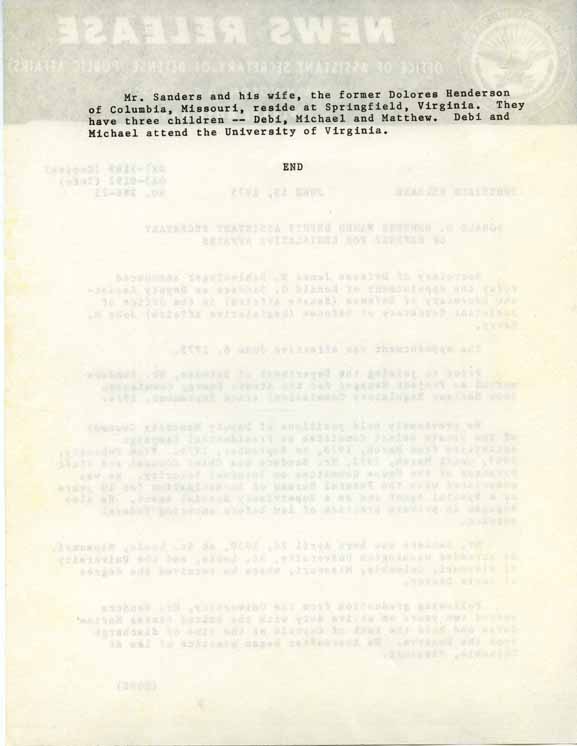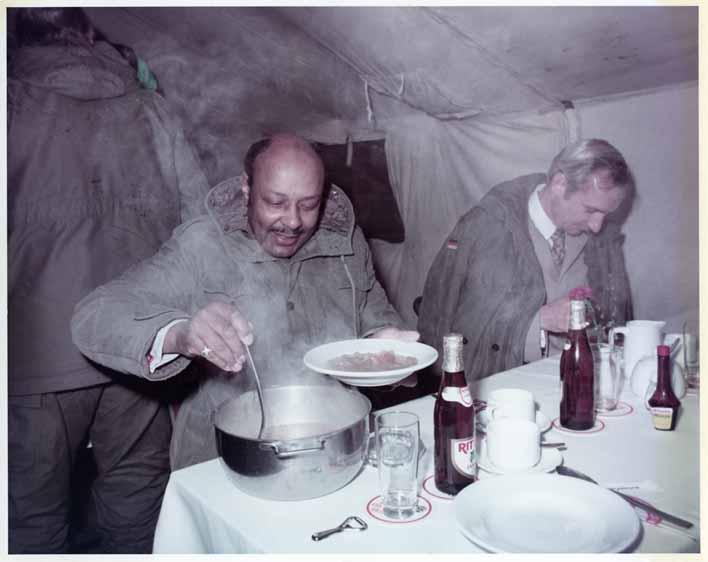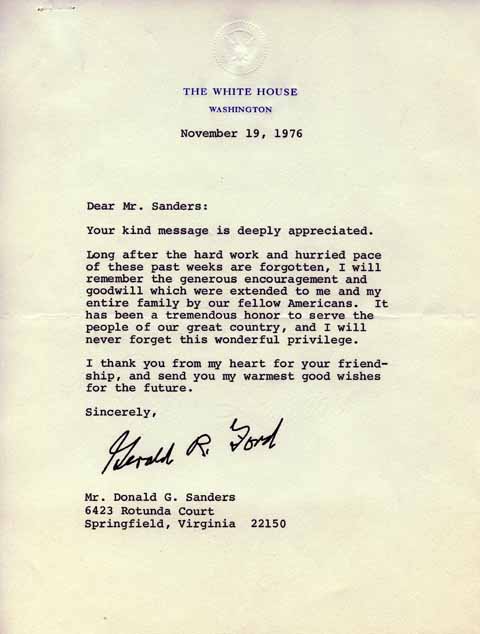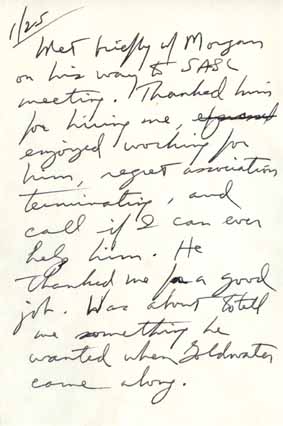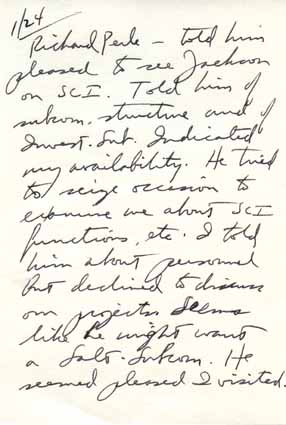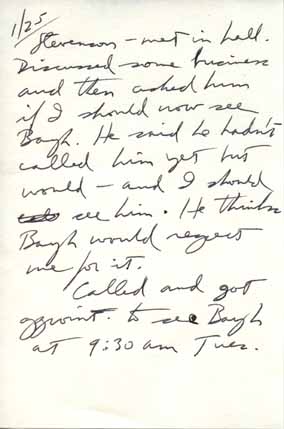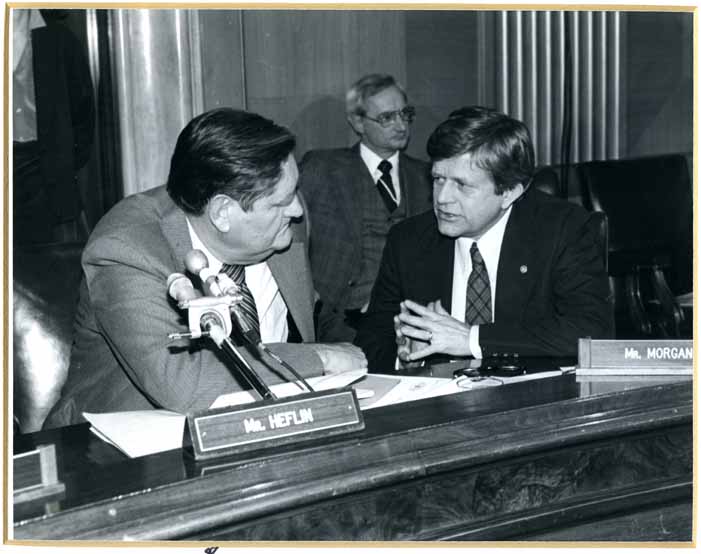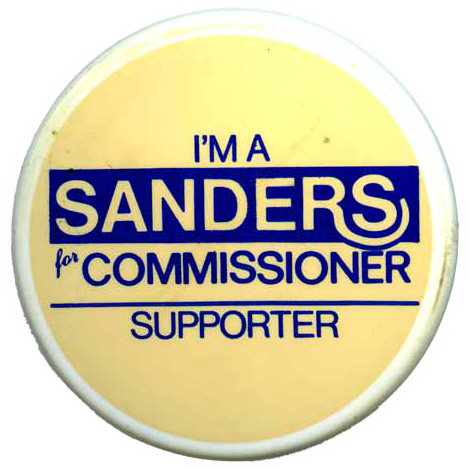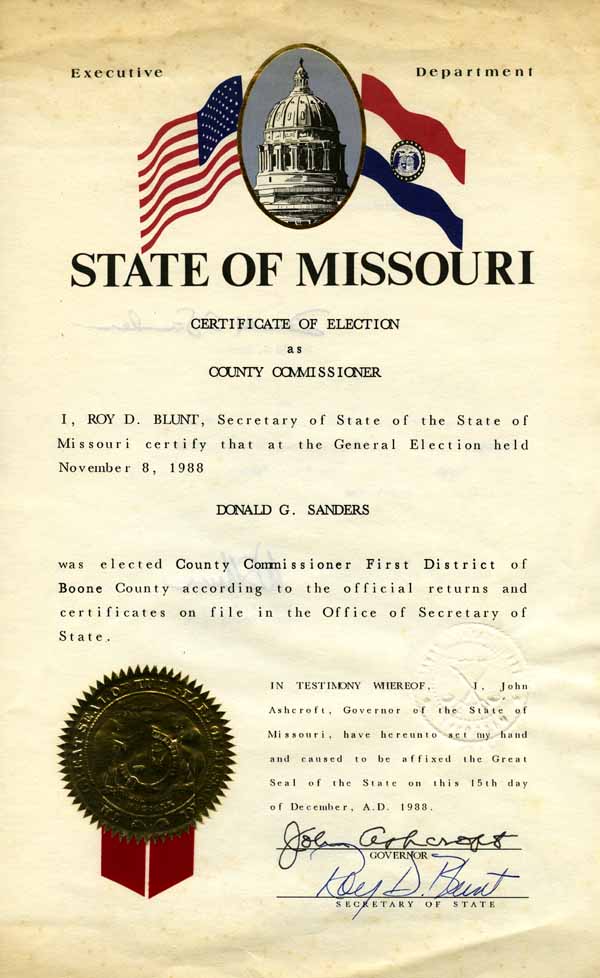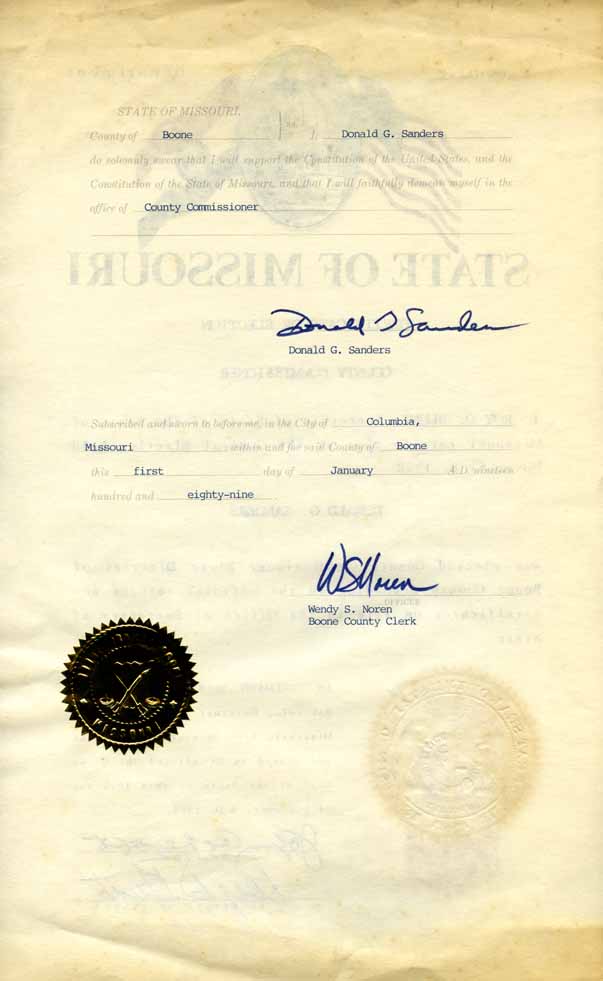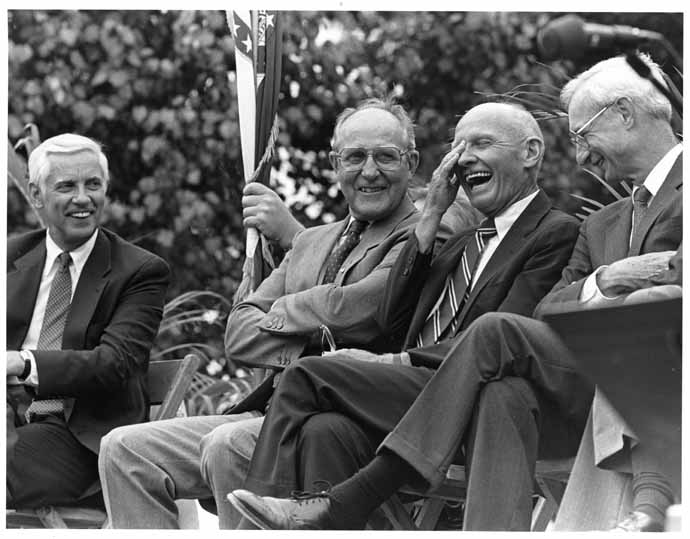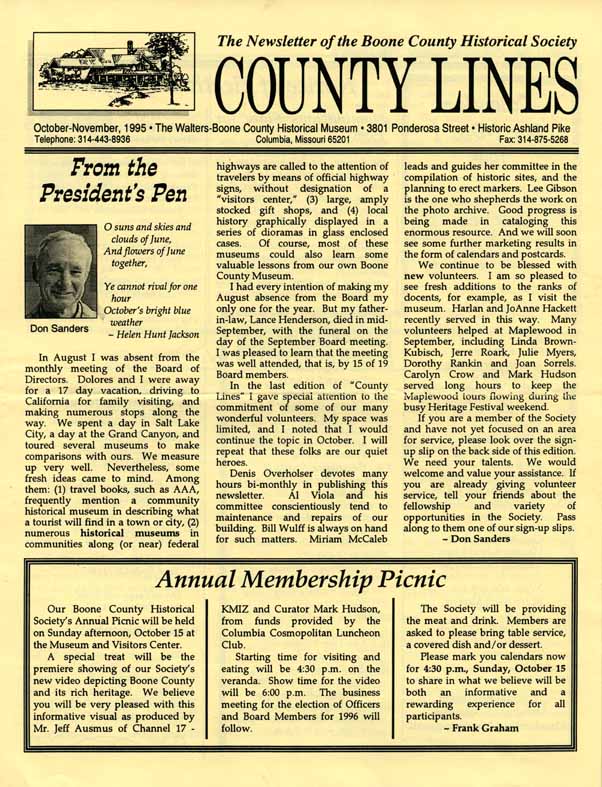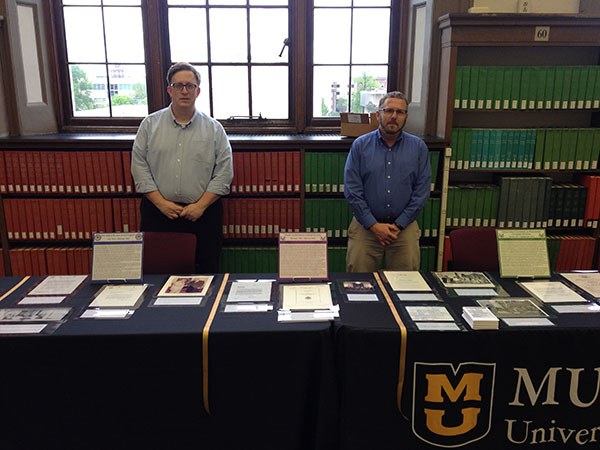
Born and raised in St. Louis (just north of Carondelet Park), Donald Gilbert Sanders attended Gabriel Woerner School and Grover Cleveland High School. He enrolled at the University of Missouri in the fall of 1947 to study agriculture, returning to St. Louis for one year to continue his education at Washington University before finally settling at MU to study law, receiving an LL.B. in 1954. He married fellow student Dolores Henderson of Columbia (Midway) in 1952. A daughter was born in 1953 and two sons followed in 1955 and 1959.
After becoming a member of the Missouri Bar Association in April 1954, Sanders moved with his family to Quantico, Virginia, where he attended the Marine Corps School. Following his discharge to inactive duty from the Marines, Sanders returned to Columbia in 1956 and began practicing law. He stayed in Columbia until 1959, working in private practice, as a city attorney for Columbia, and as an assistant prosecuting attorney for Boone County.
Sanders began applying to become an agent for the Federal Bureau of Investigation in the fall of 1958, beginning his career as an agent the following year and leaving Columbia for the eastern United States. Mr. and Mrs. Sanders returned to Columbia in 1983 after nearly two decades in Virginia. Sanders designed and helped construct their retirement home west of Columbia. He took up the practice of law again, joining the law firm of Shurtleff and Froeschner in 1985. He was made partner a year later. Sanders also returned to MU, earning an MA in History in 1991.
Don Sanders died in Columbia in 1999. Dolores Sanders Mead died in 2008.
Don Sanders started in the College of Agriculture as a freshman in 1947. He was a member of the Alpha Gamma Rho fraternity and both the Agriculture Club and the Horticulture Club. When Sanders returned to MU in 1951, he began studying law. He received the Bachelor of Laws degree in February of 1954 and became a member of the Missouri Bar Association two months later.
In 1969, Sanders was issued a Juris Doctor from the University of Missouri in substitution for an LL.B. degree awarded February 4, 1954. "In 1964, the American Bar Association had recommended favorable consideration of the conferring of the degree of Juris Doctor by ... schools on those students who successfully complete the program leading to the first professional degree in law" (1965 Review of Legal Education, ABA). As a result, many law schools retroactively conferred a J.D. on earlier recipients of an LL.B.
Don Sanders graduated from Basic School at Camp Barrett in Quantico, Virginia, in December of 1954. His class was the largest (over 1,100) to have graduated from Basic School up to that point.
Sanders then attended the School of Naval Justice in Newport, Rhode Island, becoming, as an officer in the Judge Advocate General's Corps, a 1st Lieutenant Trial and Defense Counsel.
By 1955, Sanders was stationed at the Marine Corps Base Camp Pendleton in California where he served the remainder of his active duty.
Don Sanders' LL.B. and J.D. degrees were not the last he would receive from the University of Missouri. He returned to school in 1984 and received a Master of Arts in 1991 from the Department of History in the College of Arts and Science, studying under Charles Nauert, Richard Bienvenu and Noble Cunningham.
In retrospect, Sanders' interest in history seems obvious, having lived through and, to one extent or another, been part of a number of important events in U.S. history.
When Sanders was interviewed in 1991 by a reporter for the Jackson Sun, he commented about his time with the FBI, saying that "I'm very sensitive to history. I feel like I was a part of it there" (7/5/1991).

In June of 1959, Don Sanders corresponded with then Special Agent W. Mark Felt regarding arrangements to resign his Marine Officer's commission and report for New Agents Class in Washington, DC, the following month. In September he was assigned to the division in Birmingham, Alabama, where he began work in October as a Special Agent (Headquarters Agent) under Special Agent in Charge Clarence Kelley.
While assigned to Birmingham, Sanders was one of the agents dispatched to Anniston, Alabama, in May of 1961 to interview witnesses and victims of the attack on the Congress of Racial Equality's Freedom Riders. The Riders had been traveling south from Washington, DC, on interstate bus lines to test the desegregation of the buses and stations. In Anniston, one of the buses was attacked by Ku Klux Klan members and set afire. The FBI made a number of arrests that led to federal convictions.
By the end of his time in Birmingham, Sanders had distinguished himself on both the criminal squad and the applicant squad, which provided pre-employment checks for potential FBI agents as well as for government employees.
In August of 1961, Sanders was transferred to the FBI's Miami headquarters where he worked under Special Agent in Charge Wesley Grapp.
The "Silver Fox," as Sanders was codenamed, made his last stop with the FBI at the agency's headquarters in Washington, DC, where he served from 1964 until February of 1969. In late 1965, Sanders was transferred to the Inspection Division as a member of the Permanent Inspector's Aide staff, advancing to the title of Supervisory Special Agent.
Don Sanders' first assignment was to the FBI office in Birmingham, Alabama. He received this letter of welcome from Special Agent in Charge Clarence Kelley, and it is welcoming indeed. Kelley makes the job sound just right: busy but not overly so, with supportive colleagues and a nice city to live in.
Kelley was originally from Kansas City where he attended the University of Kansas City and received an LL.B. degree in 1940. He became Special Agent in Charge in Birmingham in 1957, but he was transferred to Miami about a year after Sanders began work in Birmingham.
Kelley retired from the FBI in 1961 to become the Chief of Police in Kansas City, Missouri. Following his 1973 nomination by President Nixon, he became the second Director of the FBI, holding that position until February of 1978.
According to the caption attached to the back of this mounted photograph, this moment between Don Sanders and his former FBI boss Clarence Kelley was captured in 1973, just a few weeks after Sanders had questioned Alexander Butterfield about the existence of a taping system in the White House. Though Butterfield testified at the Senate Committee public hearing on July 16th, Sanders' role was not immediately made public, so it is uncertain if Kelley was aware of it when the photograph was taken or inscribed.
It is certain, however, that Kelley's inscription speaks to a good relationship between the two men, one that Sanders clearly valued as the board backing of the photograph shows the telltale sign of having been in a frame and exposed to light. In other words, Sanders must have had the photograph on display.
This FBI voiceprint was made of Don Sanders speaking the phrase "Took father's shoe bench out." In theory the voiceprint offered a way to identify individuals through the spectrographic impressions of their speech. In this case, the voiceprint is of the bar spectrogram type in which the sound frequency is described by the height of each mark and the loudness by the density of the marks. The uniqueness of an individual's speech depends on the body's vocal resonators, like the throat or nasal cavities, and on how the voice is articulated by the lips, the tongue, etc.
Using a spectrograph to "visualize" the voice dates back to the first part of the 20th century. Efforts at voice identification through spectrographic analysis continued through the Second World War. The voiceprint of the kind displayed here was developed by the Bell Telephone Company Laboratories in the 1960s. It is unknown exactly what Sanders' voiceprint was used for. It might have been made as an "exclusion" print for use during analyses of taped phone conversations.

In late 1968, Don Sanders expressed interest through various channels in a counsel position on the staff of the House Committee on Un-American Activities (HUAC) headed by the U.S. Representative from Missouri, Richard H. Ichord. Frank Conley, then a prosecuting attorney for Boone County who would go on to be Circuit Judge in Boone and Callaway counties for 30 years, had just assisted Ichord as HUAC counsel during hearings following the unrest caused by the Chicago Seven during the Democratic National Convention in Chicago, but he was not interested in staying on permanently with HUAC. Sanders was hired by Ichord and began work as chief counsel for the Committee, newly renamed as the House Committee on Internal Security.
Ichord looked to shift the focus of the Committee from communist to broader subversive activities which sought to "establish, or assist in the establishment of, a totalitarian dictatorship within the United States, or to overthrow or alter, or assist in the overthrow or alteration of, the form of government of the United States or of any State thereof, by force, violence, treachery, espionage, sabotage, insurrection, or any unlawful means" (House Rule IX). Investigations undertaken by the Committee during the years Sanders served as its counsel included the Students for a Democratic Society, the New Mobilization Committee to End the War in Vietnam (the "New Mobe"), and the Black Panther Party.
Since the Committee was also charged with examining proposed legislation with possible security implications, the membership held hearings in 1970 on the various bills to repeal Title II (the "Emergency Detention Act") of the Internal Security Act of 1950.
The House Committee on Internal Security and its staff pose in 1973 for an official photograph in Room 311 of the Cannon House Office Building in Washington, DC. Chief Counsel Don Sanders sits second from the right at the table next to the Committee's three other counsel.
Presiding in the middle of the dais is the Committee's chairman Richard Ichord from Missouri. He is joined by (l-r) Mendel Davis (SC), Robert Drinan (MA), Richardson Preyer (NC), Claude Pepper (FL), John Ashbrook (OH), Roger Zion (IN), and Tennyson Guyer (OH). Documents Clerk Supervisor Daniel Butler stands in the back.
Don Sanders maintained ties to Columbia even after he and his family had settled in Springfield, Virginia, and he had established himself doing congressional staff work in Washington. This letter to Columbia Chief of Police Paul Cheavens combined the personal with the professional as Sanders sought to promote the work of the House Committee on Internal Security (HCIS) by sending Cheavens a copy of the Committee's report on the Students for a Democratic Society's (SDS) involvement with high school students. The SDS was one of a number of subversive organizations the HCIS had been investigating. Interestingly, Sanders did not just pass along a copy of the report, he also asked Cheavens for any information he might have on the activity of such subversive groups at the University of Missouri.
Cheavens, who had served the Columbia Police Department since 1950 and as its Chief since 1954, retired from the force in 1975.
Students for a Democratic Society (SDS) was established around 1960 and became the largest radical student activist group of the time. United States involvement in the Vietnam War was the major impetus behind the increase in its membership. By the second half of the decade, the SDS had over 300 chapters on college campuses that held protests and organized demonstrations against the military-industrial establishment - and the higher-education institutions seen to support it - with its members, in some cases, taking over university administration buildings.
The House Committee on Internal Security (HCIS) spent much of 1969 investigating the SDS. A concern the HCIS had about the SDS was its infiltration of the pre-higher education system, as its "SDS Plans for America's High Schools" indicates. The draft on display here shows some of Sanders' final edits in blue.
By 1970, the SDS has begun to splinter. As Sanders stated in a speech to the Marine Corps Command and Staff College given early that year, "...SDS may be in disarray but it is not yet destroyed.... The major problem is that there is no grouping within the organization with a significant national following."

In his "Watergate Reminiscences" published in The Journal of American History in 1989, Don Sanders looked back on his role with the Senate Select Committee on Presidential Campaign Activities (SCPCA), recalling that "[w]hen I learned in January 1973 that the Senate was forming an investigative committee, I made application for a staff position." Indeed, his calendar for early 1973 shows numerous attempts to contact the Committee's Chairman Senator Sam Ervin and its Vice Chairman Senator Howard Baker, presumably about a position on the SCPCA staff. Sanders was hired in March to serve as Deputy Counsel and Investigator to Chief Counsel for the Minority (Republicans) Fred Thompson.
The SCPCA, though commonly referred to in the press as the Watergate Committee, had a broader mandate than just the connection of the events at the Watergate Hotel to the White House. The Committee was to investigate "the extent, if any, to which illegal, improper, or unethical activities were engaged in...in the Presidential election of 1972, or any campaign, canvass, or other activity...." Thus the SCPCA looked at not only the Watergate break-in and cover-up, but at general campaign practices, campaign financing - focusing in this regard on the contributions from dairy producers and the campaigns of Senator Hubert Humphrey and Congressman Wilbur Mills - and contributions to President Nixon's 1972 campaign handled by Charles Rebozo. Sanders' well-known contribution to the work of the SCPCA was his questioning of Alexander Butterfield (former aide to Nixon's Chief of Staff Bob Haldeman) that led to the revelation of the taping system in the White House. Sanders, however, was also engaged in other aspects of the Committee's work, including questioning witnesses during the public hearings, preparing subpoenas, and working on the Committee's various reports.This is Don Sanders' copy of Senate Resolution 60 passed in early February of 1973 to constitute the Select Committee on Presidential Campaign Activities (SCPCA) and charge it with investigating the propriety of campaign activities surrounding the 1972 presidential election. The resolution defined the role and scope of the investigative committee and determined the makeup of its membership.
Before being amended, the resolution called for five members of the Senate, of which three were to come from the current political majority (Democrats). The final resolution stipulated a membership of seven, with four from the Majority and three from the Minority. The appointed membership from the Majority was: Chairman Sam Ervin, Jr. (NC), Herman Talmadge (GA), Daniel Inouye (HI), and Joseph Montoya (NM); and from the Minority: Vice Chairman Howard Baker (TN), Edward Gurney (FL), and Lowell Weicker, Jr. (CT). The Minority members were given 1/3 of the professional staff of the committee. The staff reached its maximum of around 90 in August of 1973.
One of the statements underlined in Sanders' copy is that the committee shall investigate "... activities of any and all persons or groups of persons or organizations of any kind...."
There are many monthly planners and calendars in the Donald G. Sanders Papers and they are a rich source of information about Sanders' work and daily life. This particular planner, however, has special significance because it covers the first year of the Senate Select Committee on Presidential Campaign Activities and Sanders' busy schedule for that period.
The planner is open to July of 1973 for which month Sanders recorded everything from the time he spent working on the ceiling of his carport over the holiday to his interview with then Federal Aviation Administration Administrator Alexander Butterfield. The interview of Butterfield was conducted by Majority Investigator Scott Armstrong and Sanders. Per their established protocol, Sanders waited until Armstrong had finished questioning Butterfield before asking him why at one time Nixon took White House Counsel John Dean into a corner of the office to talk quietly about an earlier conversation of Nixon's regarding clemency for one of the Watergate burglars. In response, Butterfield revealed the White House audio taping practices.
In this photograph from the Donald G. Sanders Papers, Sanders is shown on the left, sitting next to Senator Howard Baker and Senator Sam Ervin in the Senate Caucus Room of the Russell Senate Office Building in Washington during the Senate Select Committee on Presidential Campaign Activities (SCPCA) hearings held in the summer of 1973. Sanders put questions to former U.S. Secretary of Commerce Maurice Stans who gave testimony to the SCPCA in his role as head of the finance committee for the 1972 re-election campaign of President Nixon. At the time of the June 12th hearing, Stans was under grand jury indictment in a New York trial involving 1972 contributions made by financier Robert Vesco to Nixon's campaign.
Sanders noted the following in his monthly planner for June 12th: "Questioned Stans in public hearing. Baker and Weicker [Senator Lowell P. Weicker Jr. of Connecticut] said good job. Interview by Eric Engberg for Col[umbia] Tribune."
Don Sanders is seated at the lower right in this photograph of the Minority Staff for the Senate Select Committee on Presidential Campaign Activities (SCPCA). In the center sits Fred D. Thompson, who at the time of his appointment as Minority Chief Counsel by SCPCA Vice Chairman Senator Howard Baker was a trial lawyer and a former assistant U.S. Attorney in Nashville, Tennessee. Thompson had served as campaign manager for Baker during his 1972 re-election to the Senate. Thompson would go on to successful careers in both politics (senator from Tennessee) and film and television acting (Law & Order).
Michael Madigan, Howard Liebengood, and Richard Schultz were three of the five assistant minority counsel who worked under Thompson and Sanders. Schultz had been Associate Chief Counsel under Sanders on the staff of the House Committee on Internal Security 18 months earlier.
Joan Cole was the Secretary to the Minority and Gail Oliver was one of her Minority Staff secretaries.
The photograph was taken in 1974 in the Senate Caucus Room of the Russell Senate Office Building in Washington where the hearings of the "Watergate Committee" were held.
The Watergate break-in and cover-up was only part of the investigative mandate of the Senate Select Committee on Presidential Campaign Activities (SCPCA) and it occupies only about a quarter of the SCPCA's final report.
The three documents on display here highlight another area in which Don Sanders contributed to the work of the Committee, namely that of campaign finance and, specifically, the contributions made by one of the three large U.S. dairy farmer cooperatives, the Associated Milk Producers, Inc. (AMPI).
Financial connections between AMPI and the Nixon administration extended back to the cooperative's formation in 1969. During 1970 and 1971, pledges totaling around two million dollars were reportedly in place from AMPI to Nixon's reelection campaign and the industry saw exceptional administrative increases in milk price supports and favorable import quotas. How the contribution funds passed from AMPI to the reelection campaign was part of the SCPCA's investigation and these two documents from Sanders and James Hamilton, a member of the Majority counsel team, sought to help answer those questions.
The amount of files in the Donald G. Sanders Papers associated with the work of the Senate Select Committee on Presidential Campaign Activities (SCPCA) would seem to bear witness to the commendation spelled out in this resolution presented by the SCPCA to Sanders in July of 1974. The thousands of pages of notes, documents, and drafts all speak to his "exceptional services in the Investigation of the various matters charged to the Select Committee under Senate Resolution 60 and in the public and private hearings and final report of the Committee."
The importance of this document to Sanders - as with the photograph of Sanders and FBI Director Clarence Kelley in the FBI section of this exhibit - can be seen in the fact that it was framed and displayed by Sanders, the evidence of which is found in the "tan line" along the edge of what would have been the frame matting and in the extreme fading of the ink signatures of Sam Ervin and Howard Baker caused by extended exposure to natural or other light.

Don Sanders' move to the Atomic Energy Commission (AEC) in September of 1974 came at a critical point in the organization's history. The Energy Reorganization Act of 1974, enacted in October, intended to "reorganize and consolidate certain functions of the Federal Government in a new Energy Research and Development Administration and in a new Nuclear Regulatory Commission in order to promote more efficient management of such functions" (PUBLIC LAW 93-438). Essentially, the Act split the regulatory aspects from the AEC and assigned them to the Nuclear Regulatory Commission (NRC).
The Act also stipulated that the NRC immediately focus on safeguards for nuclear facilities and material by creating an Office of Nuclear Material Safety and Safeguards, and it directed the office to assess "the need for and feasibility of establishing a security agency within the office for the performance of the safeguards functions" (NUREG-0015 Security Agency Study, 1976). By late 1974, a Special Studies Group had been created in the AEC to which Sanders was assigned, and he served as Project Manager for the Federal Security Agency Study.
In addition to taking part in the early work on this study, Sanders spent time drafting parts of the AEC report regarding the amendment of the Price-Anderson Act (which established compensation for non-military nuclear accidents/incidents) resulting from Senator Abraham Ribicoff's hearings in the Senate Committee on Government Operations.
Sanders resigned from the AEC to join the Department of Defense on January 11th, 1975. The NRC began operations just a few days later, on January 19th, 1975.
This note from Don Sanders to Seymour Smiley, the director of the Office of Special Studies and the deputy director of the Office of Nuclear Material Safety and Safeguards of the Nuclear Regulatory Commission, shows the value of Sanders' experience with congressional legislation and of his congressional connections. Legislative intent, according to Sanders, can be best understood in the context of its history. In this instance, that meant considering the scope of the directive in Section 204 of the Energy Reorganization Act to assess "the need for, and the feasibility of, establishing a security agency within the office for the performance of the safeguards functions." Ultimately the 1976 Security Agency Study endorsed regulatory methods to ensure security in the nuclear industry rather than the creation of a Federal guard force.
An interesting aspect of Sanders' note is that it manifests the transition from AEC to NRC in both the use of the AEC letterhead and the reference to "the new Commission."

Don Sanders was on loan to the Department of Defense (DOD) from the Nuclear Regulatory Commission from January through June of 1975 before the position of Deputy Assistant Secretary of Defense (Senate Affairs) was created for him. This position, within the Office of the Assistant Secretary of Defense (Legislative Affairs) was "certified only for Mr. Sanders' incumbency." Considered a "noncareer executive appointment," the position was authorized by the Civil Service Commission due to qualification and employment factors which made it impractical to recruit under normal competitive procedures.
As Deputy Assistant Secretary of Defense, Sanders served as principal advisor to the Secretary of Defense on all matters pertaining to DOD-Congressional relations. He was conversely responsible for the timely processing of Senate requests for DOD data and information and for promoting mutual understanding and cooperation between the DOD and the legislative branch. Support for DOD plans, programs, and goals were dependent upon Sanders' ability to maintain good rapport with members of Congress by assuring that those individuals remained well informed. Sanders accompanied senators on domestic travel to U.S. military installations and on foreign travel to examine U.S. bases, view allied facilities, and discuss military policies with foreign officials. He also delivered speeches on national security, the Congress, and DOD legislation to civic or military organizations.
Sanders served under three DOD Secretaries: James R. Schlesinger, Donald Rumsfeld, and Harold Brown. In November of 1975, Sanders received the highest civilian award for performance of duty from Schlesinger: the Distinguished Civilian Service Medal.
As Assistant Secretary of Defense (Legislative Affairs) Don Sanders was required to speak for the Secretary of Defense, representing the department's interests and concerns and providing briefings and other substantive information required by the Senate for its consideration, deliberation, and decision making. He also served as in-house technical expert on the Senate, its membership, and its internal workings for the Department of Defense (DOD), providing information on attitudes of individual senators regarding key legislative items of the DOD.
The position also required briefing the Secretary of Defense prior to Senate hearings or meetings and working with counterparts in the Department of State Congressional Relations and the White House Congressional Relations on all DOD-related legislation.
Don Sanders is pictured with Congressman Louis Stokes (OH) during a trip to Germany in March of 1975. Stokes served as House Intelligence Committee Chair, head of the Congressional Black Caucus, and was the first black to serve on the House Appropriations Committee.
As congressional liaison for the Department of Defense, Sanders hosted trips throughout Europe, Southeast Asia, and the Middle East. During these trips abroad, Sanders met and attended meetings with presidents and prime ministers, including Yitzhak Rabin and Shimon Peres of Israel and Anwar Sadat and Hosni Mubarak of Egypt.
After President Gerald Ford lost the 1976 election to Jimmy Carter, Don Sanders wrote to Ford on November 4th that "[t]he results of the election were indeed saddening" and that "[y]our Administration has been a unifying and stabilizing influence following a period of intense division and turmoil." Sanders concluded his letter with the hope that "the Nation and the Republican Party will continue to enjoy the benefits of your wise counsel" (C:22/9/1 Box 29 FF16).
Ford's response to Sanders can be seen here.

In May of 1977, Don Sanders joined the staff of the Senate Select Committee on Intelligence (SCI) as Director of Investigations. While still an employee of the SCI, Sanders was called upon by Senator Robert Morgan to assist the Senate Select Committee on Ethics (SCE) as Special Counsel on an investigation of possible unauthorized disclosures of classified information regarding the Senate' work on the Panama Canal Treaty negotiations.
The SCE was created to replace the Select Committee on Standards and Conduct. In addition to jurisdiction inherited from the earlier committee (allegations of senatorial and staff improper conduct, violations of law, and violations of rules and regulations of the Senate), the SCE included in its charge the enforcement and interpretation of the Senate's Code of Official Conduct. In its purview were questions of financial disclosure, gifts, conflict of interest, foreign travel, and franking, among others. Investigative staff members, like Sanders, would be assigned specific cases dealing with certain standing rules of the Senate. Sanders' case lists show him working on issues of franking, foreign travel, and gifts.
By early 1979, Sanders had transitioned completely to the SCE. One of the early examples of work undertaken by the Committee during Sanders' tenure was the investigation into the leak of a report from the Ethics Committee during its hearings into possible financial improprieties of Senator Edward Brooke. Other prominent investigations of the SCE included those of Senator Harrison A. Williams for his actions uncovered by the FBI's Abscam bribery sting operation and of Senator Herman E. Talmadge for financial misconduct.
Don Sanders would use notes like these to keep records of meetings and impromptu conversations. These particular ones most likely date to January of 1979 and the start of the first session of the 96th Congress. This had been looming as a period of transition for Sanders who was working for the Senate Select Committee on Intelligence (SCI) with Senator Robert Morgan's Special Investigations Subcommittee. Morgan, however, was leaving the SCI (first note from January 25th) and Sanders was seeking to complete a transfer to the staff of the Senate Select Committee on Ethics (SCE).
The note from January 24th is about a meeting with Richard Perle who served on the staff of Senator Henry Jackson (WA) and it gives a sense of the circumspection required in conversations between staffers on Capitol Hill.
The second note from January 25th documents a hallway conversation between Sanders and Senator Adlai Stevenson III (IL) who was chairman of the SCE. The conversation seems to have revolved around who would speak directly to Senator Birch Bayh (IN), chairman of the SCI, about a possible transfer for Sanders to the SCE.
This photograph - depicting Senators Howell Heflin (AL) and Robert Morgan (NC) with Don Sanders seated in the background - dates to the middle of Sanders' tenure with the Senate Select Committee on Ethics (SCE).
Heflin, who probably inscribed the photograph a year or two after it was taken, served as chairman of the SCE from 1980 to 1981. Morgan had been instrumental in getting Sanders onto the SCE staff.

On November 8th, 1988, Don Sanders carried 54 percent of the votes in the election for the Southern District (District I) seat on the Boone County Commission. One of the biggest challenges facing the commission was an ongoing struggle to relocate the overcrowded county jail. Sanders worked with Northern District Commissioner David Griggs to secure a site, and with the county residents' approval of a five-year, quarter-cent increase in sales taxes, the $6.8 million Boone County Jail and Sherriff's Administration Center was opened on February 28th, 1991. Sanders also negotiated with landowners, on behalf of the county, to purchase land to extend Columbia's MKT recreational trail in order to connect it with the cross-state KATY trail. In a press release from January 1990, Sanders announced that he would not seek reelection, opting to focus on the "design, budgeting, bidding and ground-breaking for the enlargement of the county courthouse," rather than campaigning for another term.
In addition to leadership in local government, Sanders provided volunteer counsel for Rainbow House, the regional advocacy center and emergency shelter for abused, neglected, and homeless children. He also held various positions, including chairman of the Administrative Board, with the Midway Locust Grove Church.
In 1994, Sanders served as president of the Boone County Historical Society, overseeing the completion and opening of a new building and gallery. He had a great interest in preserving the historic Boone's Lick Trail and the ruts from an undisturbed section of the 1820 route that passed through the family farm. His will bequeathed 14.4 acres of the property to Boone County for educational and historical purposes. On October 9th, 2014, Don Sanders was posthumously inducted into the Boone County Hall of Fame.
Sanders for Commissioner campaign tri-fold, 1988.
A button from Don Sanders' campaign for county commissioner, 1988.
Don Sanders participating in the Boone County Fair Parade with Marsha Nichols Coleman and Marsha Ann Coleman (MAC) the horse, July 1990.
Below is the Certificate of Election from the Missouri Secretary of State for Don Sanders' Boone County Commission seat.
Neither Sanders nor his opponent, Mary Ratchford Douglass, had ever campaigned for public office before and, in post-election interviews, both expressed satisfaction with the tone of the campaign.
From left, Boone County Circuit Judge Frank Conley, Boone County Commissioner Frank Graham, Chief Judge Scott O. Wright of the U.S. Western District and Boone County Commissioner Donald Sanders share a joke during the ceremony celebrating Constitution Week and the groundbreaking for the Boone County Courthouse expansion.
The Boone County Courthouse was constructed in 1909, and the ground breaking ceremony for its renovation and expansion took place on September 17, 1990. Funded by a five year one-quarter cent sales tax, the project included a new roof and dome, a 45,000 square-foot addition, and complete renovation of the existing building.
This issue of the bi-monthly newsletter, County Lines, was published during Don Sanders' term as president of the Boone County Historical Society.
Sanders had regularly contributed a similarly titled column, "The County Line," to the Boone County Journal weekly newspaper during his term as county commissioner.
This online exhibit is based directly on a display originally produced for the 2017 University of Missouri Library Society reception. The original display sought to highlight Donald G. Sanders' career through a selection of items from the more than 100,000 documents, photographs, and other materials in the Donald G. Sanders Papers held by University Archives of the University Libraries at the University of Missouri.
The display was located in the Grand Reading Room of Ellis Library. The top image is the original publicity poster for the display. The bottom image shows Archives staff members Kris Anstine and Gary Cox at one of the display tables during the reception on April 28th, 2017.
A complete inventory for the Donald G. Sanders Papers can be found here: C:22/9/1.
